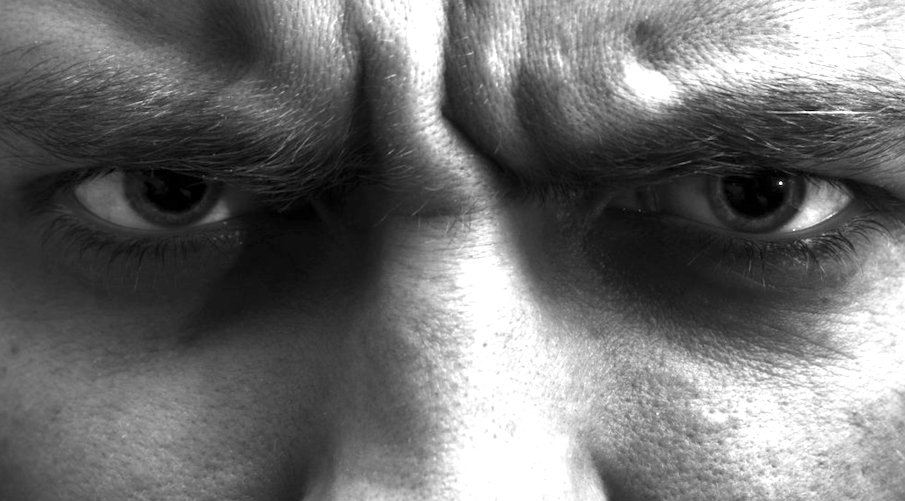Dealing with a violent person can be scary. If you’ve ever dealt with a violent or aggressive person in your life, you know what we are talking about here.
Whether it’s a violent child or teen, or perhaps a romantic partner, we all have faced those angry fiery looks coming from the people we love.
It’s almost like they are not themselves in those moments. While sometimes a violent person can be helped with therapy, it’s not always the case.
You may even have concerns because you recognize aggressive tendencies in yourself. These mechanisms are natural and these tendencies exist in all of us. The problem is when they get out of your control.
Unfortunately, violence and aggression are often linked with crimes like assault, domestic violence, child abuse, and other violent crimes, but that doesn’t have to be the case.
The following are some of the general things to know about the psychology of aggression and violence.
What is Aggressive Behavior?
Aggression is behavior that can harm others, whether it’s physically or emotionally.
Verbal abuse can be characterized as aggressive behavior, as can physical abuse and damaging someone else’s property.
Typically, anything that goes beyond the boundaries of social norms is considered aggressive behavior.
It’s not uncommon for everyone to experience occasional aggression in certain circumstances, but if it’s unwarranted, frequent or there are specific patterns, it could be important to speak with a professional.
Someone who is engaging in violent or aggressive behavior may have underlying feelings like restlessness and irritability, or impulsivity.
Understanding the root causes of aggression in yourself or someone else can be helpful.
What Causes Aggression or Violence?
There are many factors that play a role in aggressive or violent behaviors, and a person may have a few of these factors in their life or all of them.
For example, physical and mental health are factors, as are family environment, relationships with others, and one’s environment at work or school.
Socioeconomic factors, life experiences, and personal traits also play a role.
Some adults may be aggressive when they experience certain things, such as frustration.
Aggression can also be associated with mental health conditions like PTSD or anxiety.
Health conditions, including brain damage, can affect the parts of your brain that control aggression.
There are infections and conditions like stroke and injury that may lead to aggressive behavior in some people.
In children, causes of aggression may include underlying health conditions, frustration, or a child might imitate behaviors they regularly see in their life.
Some children are also aggressive when they have difficulties coping with their emotions, such as frustration.
Many times people that engage in violent behaviors have social mistrust.
They may be suspicious of others around them, society, or authority figures, and they will try to protect themselves from what they perceive as a danger as a result.
Can Aggression Be Correlated with Positive Feelings?

We often think about aggression or violence as being riven by negative emotions, such as anger.
While that can be the case, it’s not always the case.
There are positive emotions that can play a role too.
For example, for some people, behaving in an aggressive way feels good to them, so it motivates them to continue these behaviors.
Aggression can cause someone to feel good about getting revenge on someone they see as hurting them.
Those positive feelings can make aggressive and violent behavior become an addiction.
The act of hurting someone or something can affect the same areas of the brain that drugs or alcohol do.
Researchers are even looking at ways to use medicines commonly used for drug and alcohol addiction to treat aggressive behavior.
What Can Be Done About Aggressive Behavior?
In some instances, there is nothing you can do to help if someone else is behaving aggressively or violently toward you.
You should contact law enforcement if you are ever in any dangerous situation or you feel threatened.
However, if someone perhaps isn’t violent but shows signs or red flags of aggression, help is available.
You can also get help for yourself if you’re feeling aggressive.
There are ways to work through your emotions and develop healthy coping mechanisms.
Your first step might be to speak to your primary care doctor, who can recommend a therapist or someone who can help you.
Cognitive behavioral therapy is a good way to learn how to control your behavior and create your own coping mechanisms.
For children, CBT works well because it helps them learn how to think through and understand the consequences of their actions.
There are also medicines that may help if there’s an underlying mental health disorder that’s causing aggression.
The most important thing, if you’re dealing with an aggressive child, or you feel aggression in your own behavior is outside of the bounds of what’s normal, is to seek help sooner rather than later.






